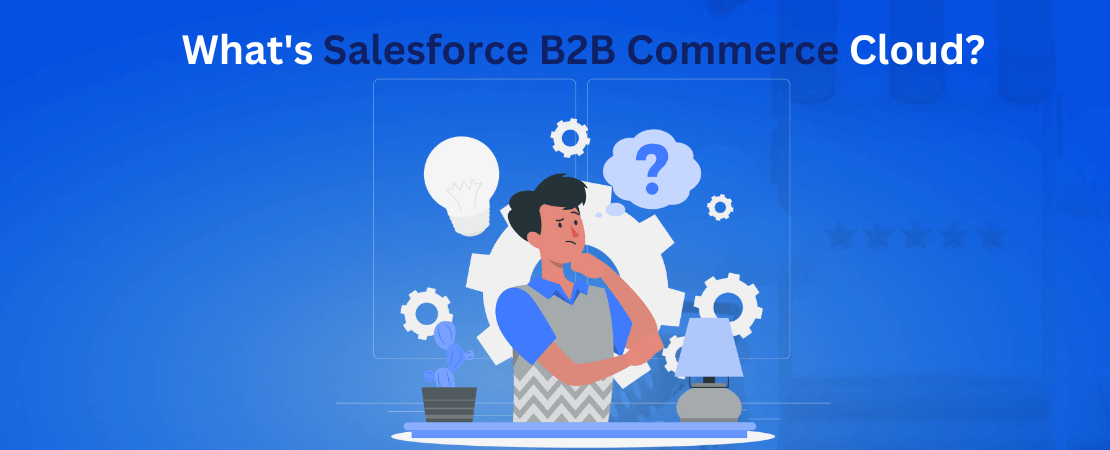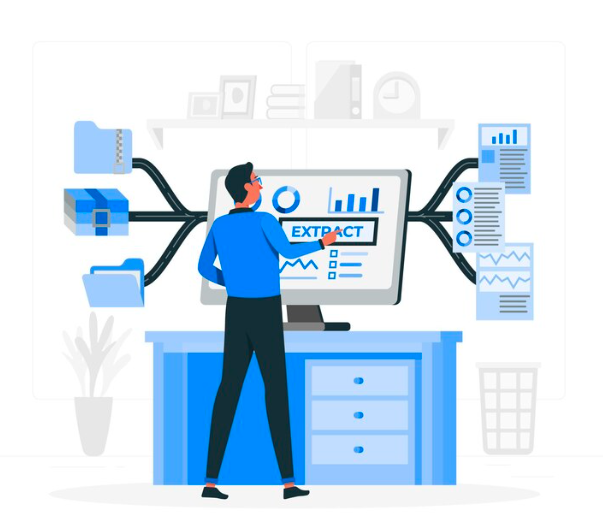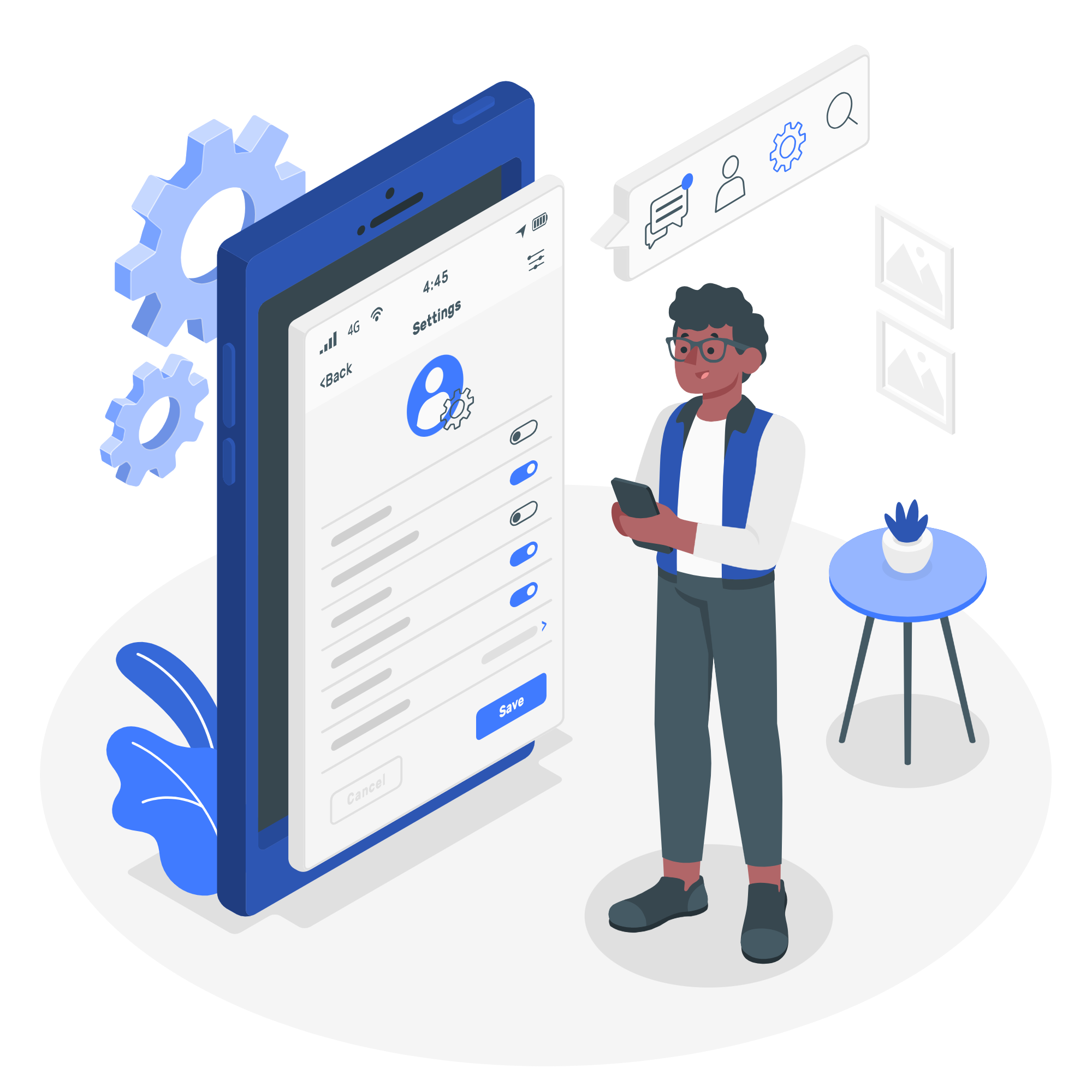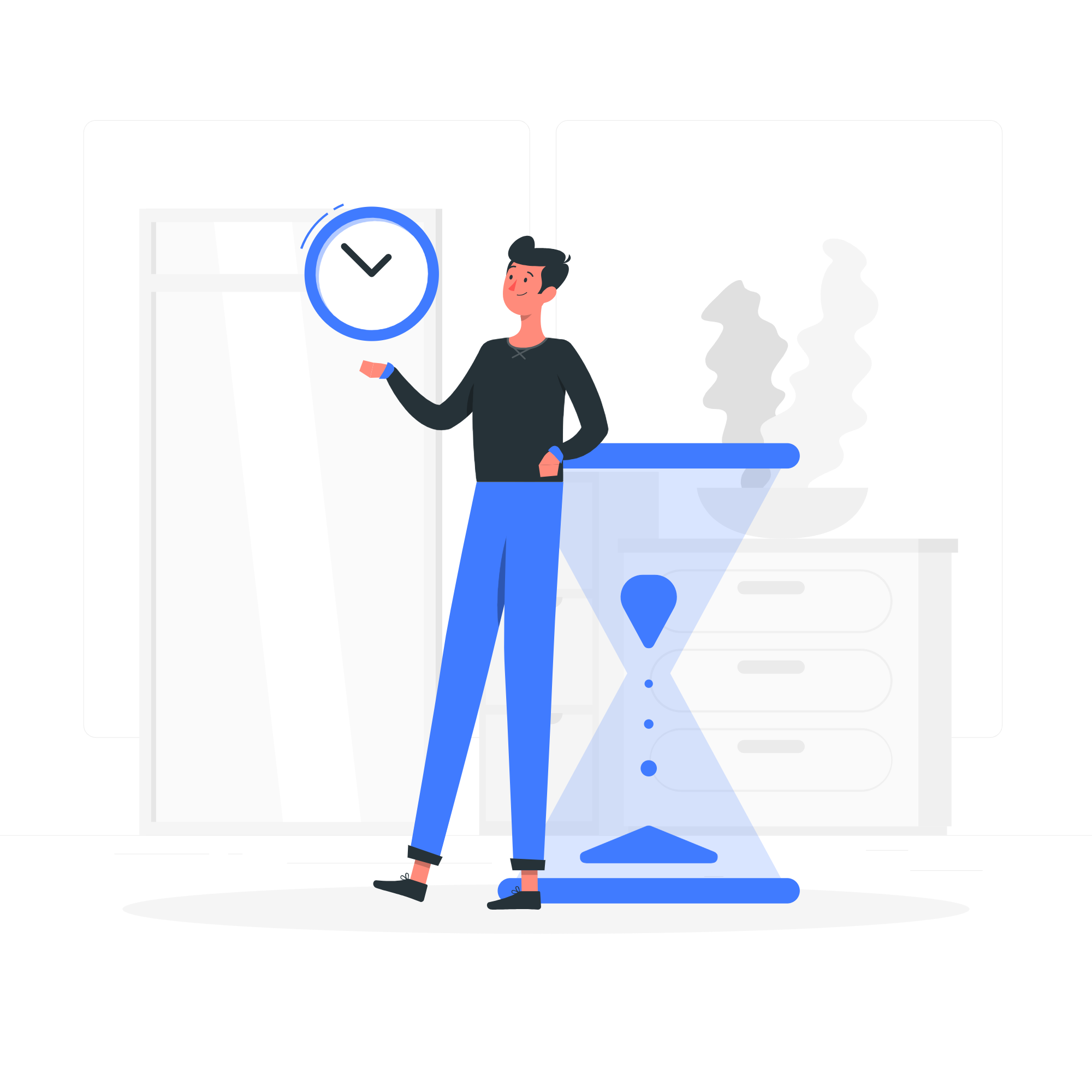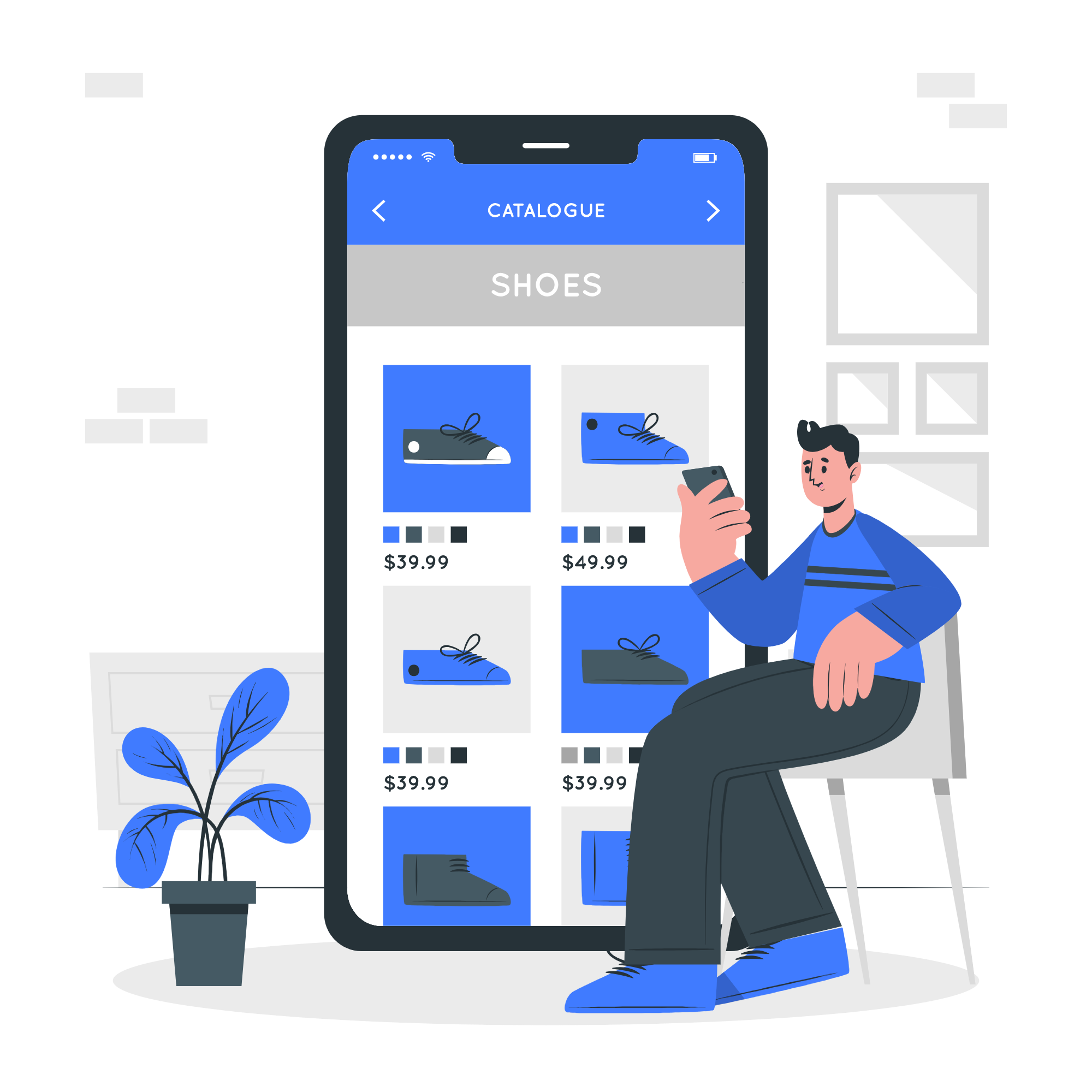Salesforce B2B Commerce Cloud is a powerful platform enabling businesses to create personalized, self-service ecommerce experiences for their customers. B2B Commerce Cloud provides an end-to-end solution for managing the entire sales cycle, from product catalogs and pricing to order processing and customer relationship management.
This can be done by utilizing the full capabilities of the Salesforce ecosystem, including Sales Cloud, Service Cloud, and CPQ.
This comprehensive guide explores the key features and benefits of the Salesforce B2B ecommerce Cloud. It provides practical tips and strategies for implementing and optimizing the platform to drive growth and success in the highly competitive B2B marketplace.
Whether you’re a seasoned ecommerce veteran or just starting, this guide will equip you with the knowledge and tools you need to succeed in the B2B ecommerce salesforce.
Salesforce B2B Commerce Cloud Guide: Key Highlights
- Enhanced Security: Multi-Factor Authentication (MFA) is now mandatory by default for direct logins to production orgs, improving overall security.
- Improved Lightning Experience: Better error handling for outdated pages minimizes disruptions for users, and stacked modals with Lightning Web Components (LWC) enhance performance.
- Focus on Admin Productivity: Admins can now add custom fields to dynamic forms and leverage in-app reminders for enabling Multi-Factor Authentication.
- Expanded Functionality: Support for five-level parent-child relationships in SOQL queries and the ability to check for duplicates before creating records in flows streamline development.
What’s Salesforce B2B Commerce Cloud?
Salesforce B2B commerce cloud is an e-commerce platform for business-to-business (B2B) transactions. It helps businesses sell products and services online and directly to other companies, streamlining the ordering process.
If you compare B2B vs B2C Ecommerce, B2B e-commerce differs from B2C e-commerce in several ways, mainly due to sales volume and the customer base. In B2C, customers often purchase a single or a handful of finished units ready for use.
B2B e-commerce orders are more extensive and usually contain raw materials (e.g., lumber) that the business will convert to various finished products. Lumber traders can sell cedar, Douglas Fir, hardwood, OSB, pinewood, spruce, and plywood in one online store.
Reading ahead, we discuss Salesforce B2B commerce cloud features and how they make these tools as powerful as they are. There is much to learn about B2B ecommerce salesforce, so stick around until the end. You can also learn about the Salesforce Commerce Cloud features that contribute to security.
Key Features of Salesforce B2B Commerce Cloud
Here are essential features of the Salesforce B2B commerce cloud for context on its capabilities:
Catalog and Product Data Management
The business can easily manage product information, such as specifications, detailed descriptions, and high-quality pictures and videos. B2B customers need to know precisely what they’ll get and want as much detail as possible.
Order Management
The B2B commerce cloud lets businesses automate and streamline product ordering, placement, and fulfillment. Salesforce order management improves order approval workflows and integrates with ERP systems for better organizational management.
Optimized inventory management
Integrating the Salesforce B2B ecommerce cloud with inventory management systems gives you real-time visibility of your product inventory. This prevents you from selling inventory you don’t have or purchasing inventory that isn’t in demand – both damaging to business.
Customer Self-Service
B2B customers feel empowered with commerce cloud self-service capabilities, including order tracking, account management, reordering orders, and viewing past purchases. These features might be simple, but they profoundly impact customer experience.
Personalization and Customization
The B2B commerce cloud lets businesses create personalized customer shopping experiences with targeted product recommendations, custom pricing, and customized performance dashboards. This allows B2B e-commerce businesses to feel more in control of their stores and can build a unique brand identity for their business.
Pricing and Quoting
Businesses can use the Salesforce B2B commerce cloud’s features to automate pricing and quickly generate sales quotations. A company can include volume discounts, contact-based pricing, and tier pricing to improve profitability and give customers the best possible deal.
Three Key Steps to Implement B2B Commerce Cloud
Getting Salesforce commerce implementation services right is essential for its success, and laying the appropriate groundwork for a business improvement system requires a plan. Salesforce B2B commerce cloud implementation comprises three essential steps:
Planning and Strategy
The first step in implementation is having a plan and an accompanying strategy to execute that plan. Here’s what goes into planning and strategizing:
- Ask yourself what you plan to achieve with the B2B commerce cloud. Do you want to improve operational efficiency? Increase sales numbers? Deliver a better customer experience? Streamline workflows? Or all of the above?
- Know your customers, their buying habits, and pain points, and customize the platform to address their needs. Customers need to feel seen and heard to build a connection with your brand and keep coming back to you.
- Knowing whether existing systems, e.g., ERP, CRM, and product information management, integrate into the B2B commerce cloud. Additionally, the business should evaluate data migration and management and any potential complexities that could arise.
- A content strategy is essential to understanding how product information (descriptions, specifications) is created and managed. It educates customers on your product offering and incrementally sways their decisions.
- There should be defined roles and permissions to determine who can access the platform and how much access they have. Roles differ for buyers, administrators, and customer service staff.
Choosing the Right Platform
The Salesforce B2B ecommerce cloud isn’t a one-size-fits-all solution for your business. It is essential to evaluate busines needs and pick the correct platform configuration for the company. Additionally, here is what to keep in mind when choosing the right platform for your B2B e-commerce business:
- Know which features the business needs and whether your preferred platform offers them, e.g., self-service capabilities, order management, or robust security protocols.
- Whether the platform is scalable with your future growth plans because when your business inevitably grows, you’ll want it to grow with it.
- Evaluate how convenient integrations are with existing tools and workflows to avoid purchasing a new system and the hassle of incorporating it.
- Evaluate how much customization you need for your B2B store and whether the platform allows you to go that far.
- Be clear on all fees and costs associated with the platform, e.g., implementation costs, platform licensing fees, and platform maintenance fees. These fees can eat into profits, so be clear about how much money you will spend running said platform.
Integration and Configuration
Running a business requires various systems to streamline operations and get work done. Before implementing a new platform, it is essential to consider whether it integrates with your existing operational systems. Here’s what to keep in mind:
- Have a data migration strategy to move customer information, order history, and product history into the Salesforce B2B commerce cloud platform. You want to ensure this is done safely to prevent data breaches and confidential data from getting into the wrong hands.
- Integrate the B2B commerce cloud with your ERP, CRM, and PIM system to ensure smooth data synchronization. These systems manage various business processes without which the business would struggle.
- Designing and building the B2B storefront to create a unique brand identity and user-friendly experience for customers. Combining form and function is essential for your business, ensuring customers visit an attractive and capable website.
- Integrating task automation for mundane, repetitive tasks such as approvals, order processing, and notifications to streamline business processes. B2B e-commerce businesses must remove as much friction from their workflows as possible.
- Thoroughly test the system in various situations before deploying it to iron out any issues hindering performance in the real world. Additionally, train your team to use the system effectively to ensure customers don’t face any roadblocks.
Incorporating these three steps during Salesforce B2B commerce implementation ensures the system fits your business. Naturally, there will be tweaks here and there before you get it right, but these three tips should point you in the right direction. They also make it easier to get the benefits of the Salesforce B2B commerce cloud.
Key Benefits of Salesforce B2B Commerce Cloud
Anyone planning Salesforce B2B commerce integration wants to know how the platform improves their business. Commerce cloud implementation is complex and costs money, so companies want to know if the investment is worth it. These benefits of Salesforce commerce cloud help reaffirm the platform as a viable business addition:
Reduce time in Marketing
The Salesforce B2B commerce cloud lets e-commerce stores incorporate order tracking and account management, allowing customers to reorder frequently ordered items. Self-service functionality eases the burden on marketing teams by allowing customers to find products that are often purchased.
This is combined with B2B commerce cloud data analytics capabilities for customer segment identification and marketing personalization. E-commerce businesses can build targeted marketing campaigns based on user browsing history, purchases, and data metrics. The result is brands getting the right message in front of the right audience, improving sales potential.
Additionally, incorporating task automation has long been a game changer for businesses, online or brick-and-mortar. Automating repetitive tasks with a single trigger saves time and effort. It frees teams to do real work instead of sending emails and updating spreadsheets. Task automation examples include order confirmation emails, product recommendations, and abandoned cart reminders.
Real-time Data
Data is among modern businesses’ most important assets because it can do so much when used correctly. E-commerce businesses can gain access to real-time customer, inventory, and sales data to make better, data-driven decisions across various business areas. Whether it is product development, marketing, or operations, effective data use improves it.
A typical example is using customer data to personalize the shopping experience. The e-commerce store gives customers targeted product recommendations, upsells on existing orders, and cross-sells based on browsing behavior and purchase history. Using real-world customer data helps businesses optimize themselves to deliver what customers want and add upselling and cross-selling while they’re at it.
Integrating an inventory management system further improves this by ensuring the products customers add to their carts are in stock.
Incorporating ai in inventory management helps forecast demand, optimize stock levels, and reduce carrying costs.
The last thing an e-commerce business needs is to sell inventory they don’t have because it razes the customer experience. Using an inventory management system ensures the store only shows the inventory in stock. The store hides sold-out products or has the ‘sold out’ banner on the product listing.
A Salesforce Commerce Cloud developer can help e-commerce businesses leverage these data insights and integrate systems to ensure smooth operations and an enhanced customer experience,
Cost Effective
All for-profit businesses want their expenses to be lower than their revenue to ensure profitability. Using the Salesforce B2B commerce cloud is one-way e-commerce businesses can effectively manage costs and improve profitability. The B2B commerce cloud is a cloud-based solution that prevents a company from investing in its hardware and software.
Not having to set up an IT department saves thousands of dollars annually, thanks to the commerce cloud’s availability of all necessary tools. A B2B e-commerce business can streamline workflows, self-service capabilities, and various operational functions with task automation. The result is reduced operational costs with improved operational efficiency and effectiveness.
Long-term growth as an e-commerce business, B2B or B2C, hinges on product quality, customer service, and the shopping experience. Humans are naturally inclined to return to stores with diverse product catalogs that effectively combine form and function and offer a personalized purchase experience. The business wants repeat customers to return repeatedly, build a consistent revenue stream, and reduce customer acquisition costs.
Salesforce B2B Commerce Cloud Functionality
To understand how e-commerce businesses can utilize the benefits of Salesforce commerce cloud, you must understand how the Salesforce B2B ecommerce cloud works. This section explores commerce cloud functionality to explain how e-commerce businesses use the platform to improve. Here’s what you need to know:
Product Catalog Management
Effective product catalog management relies on various features to make it work, including:
- Effective product information management by creating and managing detailed product information (specifications and descriptions), media (pictures and video), and product variant management.
- Using bulk import/upload features to order extensive product listings from spreadsheets and product information management tools. You no longer need to individually add products to the store, saving time and effort.
- Organizing products into well-defined product categories and subcategories to make finding products more accessible. Customers should be able to quickly find the products they need without sifting through complex menus and pages. Remember, you want it to be as frictionless as possible.
- Using effective attribute management to define and assign product attributes (color, size, dimensions, weight) makes it easier for customers to find products. Explicit product attributes are essential in B2B transactions because customers use their purchases to make other products.
- Using the commerce cloud platform to control product availability and determine pricing based on contracts, customer segmentation, or volume discount percentages.
B2B Ordering
B2B e-commerce customers need a streamlined ordering process because their business depends on your product getting to them quickly. The main features of efficient B2B ordering include:
- An order management system (OMS) automates the ordering process from placement to fulfillment. OMS features include order confirmation, package tracking, and real-time shipment notifications.
- A quick order form allows customers to easily reorder frequently purchased items or create custom orders using pre-defined configurations to simplify ordering. You won’t need to go through the navigation process; simply head to the reordering tab and reorder everything required.
- Use contract management to manage pricing agreements and customer contracts. Discounts or predetermined pricing rules are automatically applied when customers check out.
- Using different secure payment gateways to offer B2B customers various payment options. They can pick whichever works for them to quickly pay for their purchase and get the ball rolling.
Customer Management
The Salesforce B2B commerce cloud helps businesses improve customer management in various ways to improve how well they service their customers. The best customer management features in the Salesforce B2B commerce cloud include:
- B2B customers access and manage self-service capabilities such as viewing order history, account management, and reorder functionality. This gives B2B customers more control over their orders, allowing them to stay informed about what is going on.
- Integrating your customer relationship management (CRM) with the B2B commerce cloud provides a unified view of your customers and interactions. You get the most done when you don’t have to jump from one program to another just to complete one task.
- Creating and managing custom pricing lists for various customer segments. Additionally, the B2B Salesforce cloud can quickly and easily generate quotes. This can be combined with credit limits and tracking all outstanding customer balances – managing all essential financial information in one place.
B2B ecommerce salesforce transactions involve extensive and expensive transactions, requiring as little friction as possible. Since your customer is another business, a lot rides on them getting the right product when committed. Optimizing the B2B buying experience with the Salesforce B2B commerce cloud requires persistent and proactive effort.
How to Optimize B2B Buying Experience with Salesforce B2B Commerce Cloud
The Salesforce B2B commerce cloud has various features to optimize the B2B buying experience. The goal is to improve customer satisfaction and loyalty, ensuring they return and bring more business with them. The main ways for the B2B commerce cloud to enhance the buying experience include:
Optimizing The Buying Process
With reorder templates, quick order forms, and pre-configured product bundles, e-commerce businesses can simplify and expedite the ordering process. Customers can use real-time order tracking and shipment notifications to know where their shipment is and when it arrives.
Combining this with self-service capabilities, as we mentioned, helps customers take matters into their own hands without dealing with sales representatives. This reduces the buying cycle time and allows the customer to manage orders in a fraction of the time. Additionally, they can improve access with:
- Simpler, intuitive navigation for customers to find what they need quickly
- Mobile optimization to ensure the B2B storefront is accessible and responsive on mobile devices.
Resolving Common Customer Pain Points
If you, as a business, can solve a customer’s problem in a way that no one else can, with maximum efficiency, that is a returning customer who will bring you even more business.
B2B e-commerce businesses must provide comprehensive and accurate product descriptions with precise specifications and use high-quality images. They must also combine this with digital instruction manuals and data sheets to address information gaps and have delighted customers.
Other common customer pain points include:
- Complex ordering processes that have you on multiple pages entering information slow down the purchase. The best e-commerce stores try to complete the entire checkout on one or two pages.
- Displaying inconsistent pricing confuses customers and makes it difficult to budget for raw materials. They see a confusing price and are immediately tempted to pick the next best alternative. Having clear and consistent pricing rules is essential for all e-commerce businesses, B2C or B2B.
- B2B order fulfillment must always be as committed because they base production around your proposed timeline. If you commit to delivering in 10 days, the shipment must be at their door on the 10th business day after the order. Use the commerce cloud’s order management automation features that streamline order processing and fulfillment to reduce order turnaround times.
- Inconsistent communication often leaves a wrong impression, regardless of how good your offering may be. Customers want clear communication at all buying journey stages regarding order confirmations, shipping notifications, or proactive updates regarding issues.
Increase Customer Loyalty
Both e-commerce and brick-and-mortar businesses must always aim to build strong customer loyalty. A loyal customer keeps returning, and because they get the best treatment, they bring others. The Salesforce B2B ecommerce cloud helps businesses build customer loyalty by investing in creating personalized experiences by leveraging customer data.
Businesses will use past purchase history to recommend products and upsell or cross-sell on existing orders. With loyalty programs, repeat customers receive discounts or early access to new products. If needed, give them account management tools to manage customer accounts, track orders, and access past invoices.
Build and publish a self-service knowledge base with product tutorials, troubleshooting guides, and FAQs for customers with questions. Customers feel empowered to independently find solutions, which helps them build a sense of self-reliance. Building customer loyalty is an essential component of B2B e-commerce that can completely change the business.
Personalizing the B2B Commerce Experience
Building on the last section, personalizing the B2B commerce experience is an effective way to cater to every customer and create an engaging experience, even for something as simple as e-commerce. The Salesforce B2B commerce cloud has various features and functions that use customer data for personalization, resulting in improved sales and customer satisfaction.
Using Customer Data To Personalize Experiences
The B2B commerce cloud allows businesses to collect customer and store data from various sources and extract meaningful insights for personalized experiences. The primary data types include:
- Customer purchase history to track what customers bought in the past to learn their buying habits
- Customer browsing behavior to see which products customers viewed or searched for to understand their potential needs and interests.
- The industry and company size that the customer is working in to tailor recommendations and storefront content.
Recommend Relevant Products
Personalized product recommendations are an essential and underrated method of giving customers what they want. Based on past purchase behavior, you can recommend complementary products they show interest in. Other recommendation examples include:
- Products frequently bought together
- Recently viewed products
- industry-specific recommendations
- Role-based recommendations
Expand Reach With Salesforce B2B Commerce Cloud
You need more sales for more revenue, and the best way to make that happen is by having as many eyes on your business as possible. Here’s how to expand your reach with the Salesforce B2B ecommerce cloud:
Selling Across Multiple Channels
Omnichannel e-commerce helps businesses create a buying experience on several platforms (website, social media, mobile application). Integrate your point-of-sale (POS) system across all platforms for a unified sales approach. The more people see and hear about your business, the higher the chances of getting new customers.
Beyond a B2B storefront, mobile applications, and social media, you should also list products on B2B online marketplaces and professional networks. Find out which platform your target audience uses and look for new clients there.
Reaching New Customers
Your next strategy should be optimizing your e-commerce store for organic traffic via search engines. When customers look up a particular keyword, your online store must appear high in search results to improve your chances for conversions.
The business can use the Commerce Cloud’s various digital marketing tools to create targeted marketing campaigns using customer data. This step requires significant trial and error before it is done correctly. Its success hinges on your research and preparation, which are incredibly easy to do right.
Expanding Into New Markets
The Salesforce B2B commerce cloud has multi-language and currency support, allowing businesses to localize themselves with content and product information relevant to different markets. Having no currency and language barriers helps reign in international customers, tapping into immense revenue potential and growth.
The B2B commerce cloud also helps businesses comply with international data and security regulations, enabling them to operate legally in a new market. Entering new markets should be part of every B2B e-commerce business’s growth model.
Measuring Success with Salesforce B2B Commerce Analytics
With the B2B commerce cloud, tracking business performance becomes more straightforward thanks to advanced tools and a clear business vision. Here’s how to measure success with the Salesforce B2B commerce cloud:
Track Key Performance Indicators (KPIs):
- Businesses can create custom dashboards to monitor various B2B ecommerce KPIs relevant to business goals, including:
- Sales growth
- Conversion rates
- Customer acquisition costs
- Average order value (average amount spent per customer order)
- Tracking these KPIs over time helps assess the effectiveness of your B2B ecommerce strategy and identify areas for improvement.
Analyzing Customer Behavior:
- B2B Commerce Cloud uses different tools to track customer behavior in your store, including:
- Browsing patterns
- Purchase history
- Search queries
- Analyze this data to understand your customer needs and preferences better. You can use these insights to:
- Personalize product recommendations and promotions
- Improve website navigation and search functionality
- Develop targeted marketing campaigns based on customer segments
Optimizing Marketing and Sales Strategies:
- With data-driven insights from B2B Commerce Cloud analytics, you can optimize your B2B ecommerce marketing and sales strategies. This includes:
- Identifying your target audience more effectively
- Creating more targeted and relevant marketing campaigns
- Refining your sales approach to better address customer needs
- Streamlining the sales process for faster deal closure
Empowering Sales Reps with Salesforce B2B Commerce
Providing Sales Reps With Real-Time Data
Sales reps can access real-time data on:
- Product availability
- Customer order history
- Contract pricing
- Have more informed conversations with customers to answer questions and close deals faster.
Enabling Reps To Place Orders On Behalf Of Customers
Your sales reps can go into the B2B cloud platform and directly order their customer’s products for them. Customers no longer need to separately order their inventory, allowing the sales cycle to move ahead effortlessly.
Overcoming Top Challenges in B2B Commerce Cloud Implementation
For all the value that the Salesforce B2B commerce cloud offers, it is not without its challenges. The three main obstacles in B2B commerce cloud implementation include:
Data Migration Issues
Migrating large volumes of product data, customer information, and order history from existing systems to the B2B Commerce Cloud can be complex and time-consuming. Inconsistencies or errors in data can lead to issues later.
Here’s how to solve it:
- Data cleaning and standardization should be used before migration to ensure accuracy and consistency.
- Consider a phased migration approach to minimize disruption and make room for testing and validation.
- Utilize Salesforce data migration tools or partner with a B2B Commerce Cloud implementation expert to streamline the smooth migration process.
Security Concerns
Security is paramount in B2B commerce, as you’ll handle sensitive customer and financial data. Here’s how to solve it:
- The platform offers robust security features like data encryption, access controls, and user authentication.
- Ensure PCI DSS compliance along with other industry regulations.
- Regular security awareness training for your employees to minimize security risks.
Does Salesforce B2B Commerce Has Any Future?
As per experts Salesforce B2B commerce has good future. Learn with Reddit Salesforce experts about B2B commerce future:
How do you feel about the future of Commerce Cloud B2B?
byu/elideli insalesforce
Does Salesforce Commerce Cloud have a future?
byu/timetoarrive insalesforce
Conclusion
Salesforce B2B Commerce Cloud represents a transformative shift in B2B commerce, empowering businesses to create seamless, personalized digital experiences for their customers. By leveraging this platform’s robust capabilities, companies can streamline their operations, drive sales growth, and stay ahead of the competition in the rapidly evolving B2B landscape.
As the B2B ecommerce market continues to grow, the importance of adopting a comprehensive, integrated solution like Salesforce B2B Commerce Cloud cannot be overstated. By implementing this platform, businesses can future-proof their operations, enhance customer engagement, and position themselves as leaders in their respective industries. With the guidance and expertise of a Salesforce Commerce Cloud consultants, organizations can unlock the full potential of this transformative solution and achieve their strategic objectives in the dynamic world of B2B commerce.
FAQs
Can Salesforce Be Used For B2B?
Yes, Salesforce can be used for B2B e-commerce with the Salesforce B2B commerce cloud.
How To Enable B2B Commerce In Salesforce?
Salesforce B2B Commerce Cloud is a separate product requiring additional setup beyond a standard instance.
How Much Does Salesforce B2B Commerce Cost?
The cost of Salesforce B2B Commerce Cloud varies depending on your specific needs and configuration. Contact Salesforce for a quote.

Hasan Mustafa
Engineering Manager Salesforce at Folio3
Hasan Mustafa delivers tailored Salesforce solutions to meet clients' specific requirements, overseeing the implementation of scenarios aligned with their needs. He leads a team of Salesforce Administrators and Developers, manages pre-sales activities, and spearheads an internal academy focused on educating and mentoring newcomers in understanding the Salesforce ecosystem and guiding them on their professional journey.
